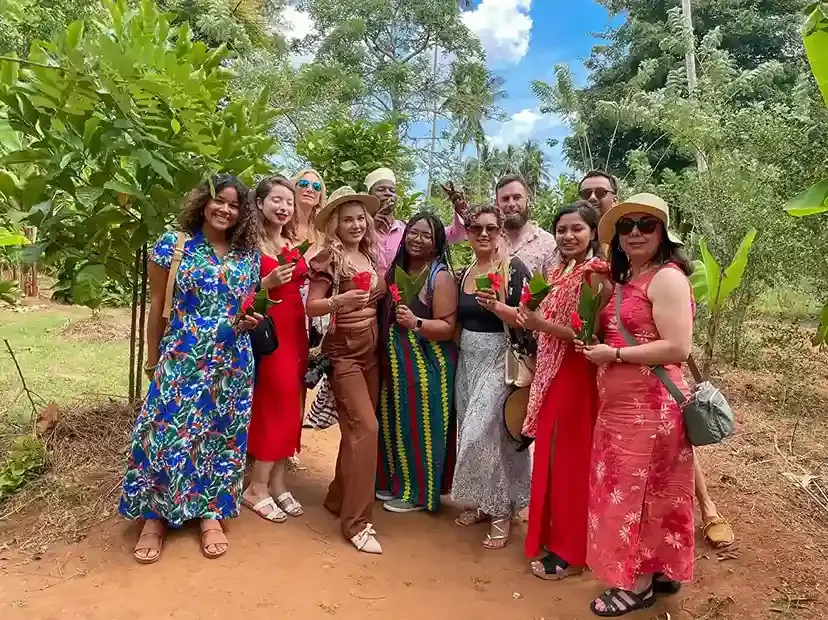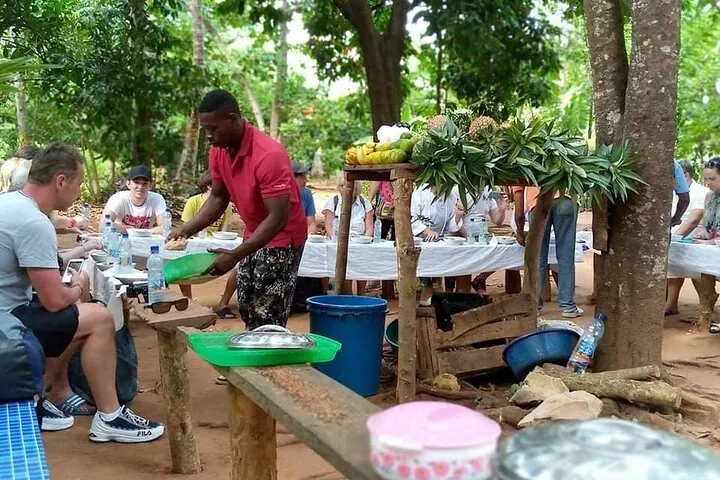Swahili Culture in Zanzibar: Language, Customs & Traditions
Immerse yourself in the vibrant Swahili culture of Zanzibar, where African, Arab, Persian, and Indian influences blend seamlessly. From the lyrical Swahili language to the intricate customs of Stone Town, this guide explores Zanzibar’s traditions, architecture, wedding ceremonies, and etiquette. With Capable Africa Tours, you’ll uncover the heart of Zanzibar’s cultural heritage through authentic experiences like spice tours, Taarab music, and local festivals. Ready to dive into this cultural mosaic? Let’s get started!
Discover Swahili Culture
What is Swahili Culture in Zanzibar?
Zanzibar’s Swahili culture is a captivating blend of African, Arab, Persian, and Indian influences, shaped by centuries of trade across the Indian Ocean. This cultural fusion is evident in the island’s language, architecture, music, cuisine, and traditions. Stone Town, a UNESCO World Heritage Site, is the epicenter of this heritage, with its narrow alleys, coral stone buildings, and intricately carved wooden doors. Whether it’s the rhythmic beats of Taarab music or the communal spirit of Swahili customs, Zanzibar offers a rich cultural tapestry that enchants every visitor.
The Swahili Language in Zanzibar
The Swahili language, or Kiswahili, is the heartbeat of Zanzibar’s culture. A Bantu language enriched with Arabic, Persian, and Portuguese words, it’s spoken across East Africa and is Tanzania’s official language. In Zanzibar, you’ll hear locals greet each other with “Jambo” (hello) or “Habari” (how are you?). Learning a few phrases can enhance your experience and show respect for Zanzibar’s language and culture. For example, saying “Asante” (thank you) or “Karibu” (welcome) opens doors to warm interactions. Capable Africa Tours can arrange language workshops to help you connect with locals.
Swahili Customs and Etiquette
Zanzibar’s Swahili customs reflect a deep sense of community and respect. Greetings are important—expect to exchange pleasantries before diving into conversations. Modest dress is key, especially in Stone Town and rural areas, where covering shoulders and knees shows respect for the predominantly Muslim culture. When dining, meals are often shared communally, with dishes like pilau rice or ugali served on large platters. Zanzibar etiquette also includes removing shoes before entering homes or mosques and using your right hand for eating and greetings. These practices create a warm, inclusive atmosphere for visitors who embrace them.
Swahili Architecture in Stone Town
Stone Town’s Swahili architecture is a visual testament to Zanzibar’s cultural heritage. Coral stone buildings, adorned with intricately carved wooden doors featuring brass studs, line the narrow streets. These doors, a symbol of status, often feature Indian and Arab motifs, reflecting the island’s diverse history. The House of Wonders and the Old Fort are prime examples of this architectural blend, combining African, Islamic, and European elements. A guided tour with Capable Africa Tours will help you decode the stories behind these structures and their cultural significance.
Swahili Wedding Traditions
Swahili wedding traditions in Zanzibar are a vibrant celebration of love and community. Ceremonies often span several days, featuring rituals like henna painting, traditional dances, and feasts with dishes like biryani and coconut-based curries. The bride’s procession, accompanied by Taarab music, is a highlight, with women wearing colorful khangas or headscarves. Guests shower the couple with blessings and gifts, emphasizing unity and family. Visitors can sometimes witness these events during cultural festivals or arrange to learn about them through immersive tours with Capable Africa Tours.
Music and Dance in Swahili Culture
Music and dance are central to Swahili culture in Zanzibar. Taarab, a melodic fusion of African, Arab, and Indian music, is performed with instruments like the oud, qanun, and violin. You’ll hear its soulful tunes at weddings, festivals, or cultural evenings in Stone Town. Traditional dances like Ngoma, with rhythmic drumming and vibrant movements, celebrate community and heritage. The Sauti za Busara festival in February showcases these art forms, drawing global audiences. Capable Africa Tours can arrange visits to live performances for an authentic experience.
Swahili Cuisine: A Taste of Zanzibar
Zanzibar’s Swahili cuisine is a delicious reflection of its cultural diversity. Staples like ugali (maize porridge) and pilau (spiced rice) are paired with coconut-based curries, grilled seafood, and tropical fruits like mangoes and passionfruit. The island’s spice trade influences dishes, with cloves, cardamom, and cinnamon adding depth. Don’t miss Zanzibar pizza, a street food favorite, or urojo, a tangy soup. Join a cooking class with Capable Africa Tours to learn recipes and visit spice farms to see ingredients firsthand.
Festivals Celebrating Swahili Culture
Zanzibar’s festivals are a vibrant showcase of Swahili culture. The Sauti za Busara music festival in February brings together artists from across Africa, featuring Taarab, Ngoma, and modern Swahili music. The Zanzibar International Film Festival (ZIFF) in July celebrates East African storytelling through film, dance, and art. Mwaka Kogwa, a traditional New Year festival, includes rituals like mock fights and feasts, marking renewal. These events offer a deep dive into Zanzibar’s traditions, and Capable Africa Tours can help you plan your visit around them.
How to Experience Swahili Culture Authentically
To truly experience Swahili culture in Zanzibar, go beyond the beaches. Wander Stone Town’s markets, where vendors sell spices, textiles, and handmade crafts. Join a spice tour to learn about Zanzibar’s agricultural heritage, or take a dhow cruise to see the island from a traditional boat. Engage with locals respectfully—learn a few Swahili phrases, ask questions, and share meals. Capable Africa Tours offers cultural immersion tours, including visits to local homes, music performances, and craft workshops, ensuring a meaningful connection to Zanzibar’s heritage.
Tips for Respecting Zanzibar’s Swahili Culture
Respecting Zanzibar’s Swahili culture enhances your travel experience. Dress modestly, especially in Stone Town and villages, covering shoulders and knees. Use your right hand for greetings, eating, and exchanging money. Ask permission before photographing people or religious sites. Avoid public displays of affection, as they may be considered disrespectful. Learning basic Swahili phrases shows appreciation and builds rapport with locals. Capable Africa Tours provides cultural briefings to ensure you navigate Zanzibar etiquette with ease.
Discover Swahili Culture with Capable Africa Tours
Ready to immerse yourself in Zanzibar’s Swahili culture? Capable Africa Tours offers tailored experiences, from Stone Town walking tours to spice farm visits and cultural festivals. Our expert guides ensure you connect with the island’s language, customs, and traditions authentically. Pair your cultural journey with a beach getaway or Tanzania safari for an unforgettable adventure.
- Expert Local Guides for Cultural Immersion
- Customizable Cultural and Adventure Tours
- Authentic Experiences with Local Communities
- 90% Customer Satisfaction Rate
- Commitment to Sustainable Tourism



